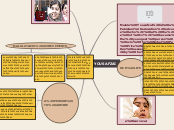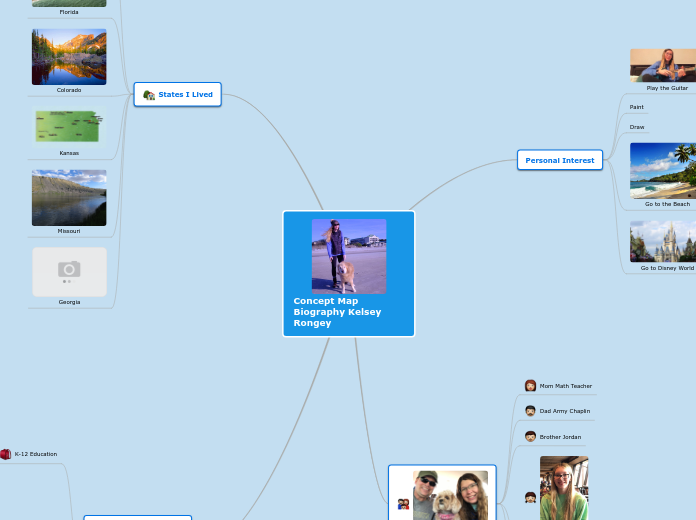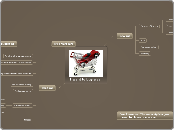https://drive.google.com/open?id=1AAY4LCEiufS0LEbRmAwihlvY2iLxS5oU
Characters In Reckoning
Zbigniew
Chapters
'My father's people' 19
'Leon Uris' - 93
'The stone of madness' 314
Jaduiga
'My mother was a brave woman...' 302
Mieczyslaw
'Mieczyslaw was a harsh task master.' 102
Life
Family had been affluent with
photos of them on holiday
Zbigniew was in awe of his
'impeccable moral character' 19
Worked as a policeman until he
left due to corruption
Born in Warsaw 1894
Hiding his past
Dispite his efforts to hide the past, his family are undoubtedly impacted by this second hand trauma
transgenerational trauma
intergenerational trauma
Names
"With all of his might he tried to reason it out of existance" - 366
Zbigniew -> changes to "Peter" willingly. Another way to assimilate
Epistemological violence
Zbigniew Szubanski experiences epistemological violence during his settlement in 1960's Australia, willingly adapting the name "Peter' in an effort to assimilate and firther suppress his dramatic Polish past.
Wants to change his name to get rid of his past
The changing to a 'normal' western name, - the idea that western ways are superior
Strugges to connect with his children
Tennis
He didn't want his daughter to be weak, just like the people during the war??
"He was trying to cure me of weakness"
"I was always terrified that one of my kids would be a traitor" - 365
Trepanning - PG 365
Puts a lot of emphasis on education becuase he missed out on it
He wants his children to have the privliaged that he never had
Places very high expectations on the children
Trauma - feels guilt for killing Polish collaborators during the war
Hiding(repressing) his shame worsens it "calcified guilt"
However, the "stone of madness" remains
Acts as if he's buried the guilt thorugh successful migration
Purposely vague about details
Hides this from his family
Wants to let go of his past life, absolute assimilate
Cathloic for traditions, but didn't really follow religon
Felt lucky to have survived the war when so many others didn't
Magda meets an old war buddy of Zbigniew and tells us that...
Those who didnt escape and surrendered were sent to POW camps
Last time he saw Zbigniew was at 7 o'clock when he want into the sewer. 2 September 1944
After a month of fighting a losing battle, survivors and fighters tried to flee their old town though the city sewers
It was Zbigniew's 20th birthday in the cemetry at the first hour of the uprising
It was the first mement of freedom, first piece of free Polish Soil, after six years of humilition
"It's started. We must assemble at the Evangelical Cemetry"
"We've lived to see ths moment"
"Boys, we're starting the fight against the Germans"
Gave Magda, Zbiniew's letters
Full of Homor
He was a born leader
During the war
During the War
Fought the uprising against the germans
Escaped to scotland
The soviet army would then advance after a month to a city in ruins
Liberating a broken city
SS soldiers went from door to door executing any women and children
200,000 people died in the war??
Constantly bombarded and fighting from street to street, the polish strugged to hold on, but the soviets did not come to their aid
"We never expected that the Germans would be so cruel"
We accepted the fact we could die, it was the price of war
20,000 people were murdered in the first ten days of the uprising
ANy captured resistance fighters were shot on the spot
Soviet army stood idle becuase they wanted a post war Poland to take without any reistance
But the soviet army stood idle becuase they wanted a post war Poland to take without any reistance fighters
Any captured ristance fighters were shot on the spot
The uprising would wail without the Soviet's hep
Captured back strategic areas around warsaw
In 1943, he graduated from the Underground Officer School to become a member of the elite secret unit 993W commanded under the polish government in exile and are responsible for carrying out executions
German Police everywhere
"Not easy to kill your own"
He had to Catch bad buys and shoot them in the face from close up
993W would Kill anyone who betrayed poland, even their own people
Dark and tormenting job
Was part of the underground government's execution squad
A key figure in the resistance
Couldn't bear to watch Jewish Holocaust
He was 15 when the war broke out
Only a teenager when Poland was invaded
Born and Grew up in Warsaw
Comparision
Both Ashoke and Zbigniew think that a new start in the western world will help them overcome challenges of the past
Magda Szubanski
Adult life
Literature
Important in finding her identity, Leon Unis - 93 -> depictions of Poles is worse than Magda imagined
"Some, Magda, some. You always have a choice. Some people did the right thing." - 95
"Tell me! Were the Poles as bad as the Germans?" - 95
"I knew we were on the same side, the good side" - 93
Chapter tells us what the Polish really did during the war
Challenges
"Stone of Madness"
The way of coping
Is this part of the stone of madness?
The ways that Peter and Magda try to deal with same and identity is to bury the problem
Still treats her as a child (sometimes)
Sometimes feels belittled by her father
Struggles with sexuality
Parents
Underestimated them, misjudged their reaction
Feels guilt after coming out to her parents
Catholic upbringing
makes it even harder for her to come out
"My God was not a god of love. He was a pre-Vatican god of fear and damnation." - 85
Cultural context in Australia during the 70's onwards was very conservative sexual fluidity was not generally accepted, many people were in fear for being 'outed'
Worried about what her parents would say
Disowned
Subtopic
Migrated from England to Australia when she was 5
Margaret
Experiences loneliness and disconnection in Australia - Similar to Ashima?
Still very supportive of Magda
Physically absent - working a lot, while peter is somewhat emotional absent
Mother
Meg
Father
Luke John McCarthy/Carty
Family
Died at the age of 62
Raised 3 Children
After the war
Overcame his shellshock
Returned to ireland and then moved to scotland
Luke got discharged in 1918
His shellshock made him want everything to be quiet, including his children
Very distant with his children
His shellshock made him have rage fits
"sickness" Having Shellshock
War Period
Blown up body parts and dead Englishmen were on the battlefield that he had to cross
Luke joined the army 5 days after leaving prision becuase he was too poor
200,000 irish men join the fight
When he was released out of prision, WW1 was already started
Before the war
Luke was sent to prision for 3 years by stealing food and tobacco
Luke was working in a hotel + alcohol store
No proof that Grandfather Luke was in the IRA
They were living in ruins
Early Life
He changed his last name to Carty to attempt to erase his irish culture
At 17, Luke had lost his father and 10 of his siblings
Luke's mother gave birth to 13 children, but only 3 survived
Luke was 17 when his father died









